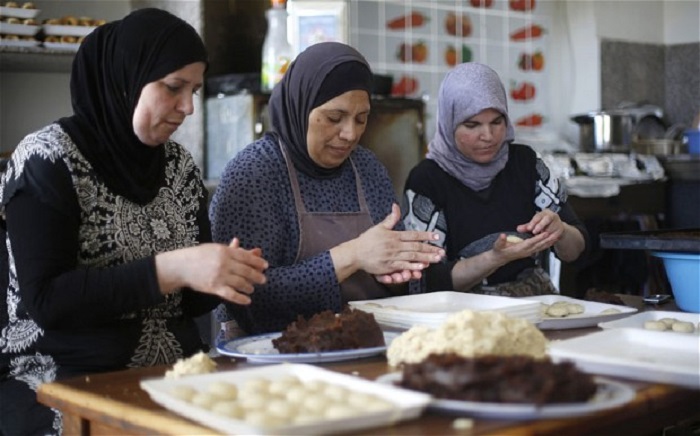Working women have a tough balancing act in Ramadan, with having to oversee preparation of meals, care for their children and attend to their spiritual duties.
An example of their tough schedules has been highlighted on a 30-minute show aired by Al-Arabiya, showing how they have to ensure a proper balance is struck between their home and work lives, particularly during the holy month.
Sara Mohammad, a bank employee, was quoted as saying: “The distance between my house and work is almost 85 km, from Riyadh to Al-Kharj. I have to balance my duties as a mother, housewife and employee. This is almost like a mission impossible during Ramadan.”
She said that in the morning she makes breakfast for her three children and dresses them, and then her husband takes them to her mother’s house, where they stay for six hours while she is working.
“While working, I am forced to answer their calls asking me when I will return home or bring them sweets and treats. After I get home I make soup and samboosas and then heat a frozen meal, which I buy in large quantities from a woman who sells products through Instagram.”
She said that her husband and children assist with the meal and to prepare the table. “After this I perform Taraweeh prayers and read parts of the holy Qur’an while my children watch TV. The last thing I do before bed is to check on my mother and mother-in-law to make sure they are OK.”
Huda Asiri, a nurse, said she has no one to help her because her parents live in the southern part of the country and her mother-in-law, who lives with her, is disabled.
“I was forced to hire an Ethiopian maid to help me, at a cost of SR3,500 a month. I have no alternative but to tolerate her laziness and poor work until I get back from work. Then my role is to care for my son, help my mother-in-law to eat because she cannot help herself and give her medication. Before bed, I sit with my husband for a while and attend to my religious duties.”
Abeer Khalid has a much easier job because she lives with her in-laws.
“With the help of my sisters-in-law we prepare the food for the family and worshippers at the neighboring mosque. We have a schedule for Ramadan commensurate with my work. They prepare iftar meals and clean the dishes and tend to the house, while I sort out the suhoor table and clean the kitchen at night. I help them take care of their parents, in shifts,” she said.
Sociologist Maha Aqeel said women have the ability to multi-task. “They have the ability to cope with the pressures of life and carry out a tremendous amount in one day,” said Aqeel. Many women successfully balance work and family, she said.
[Source: Arab News]





 WhatsApp us
WhatsApp us 

